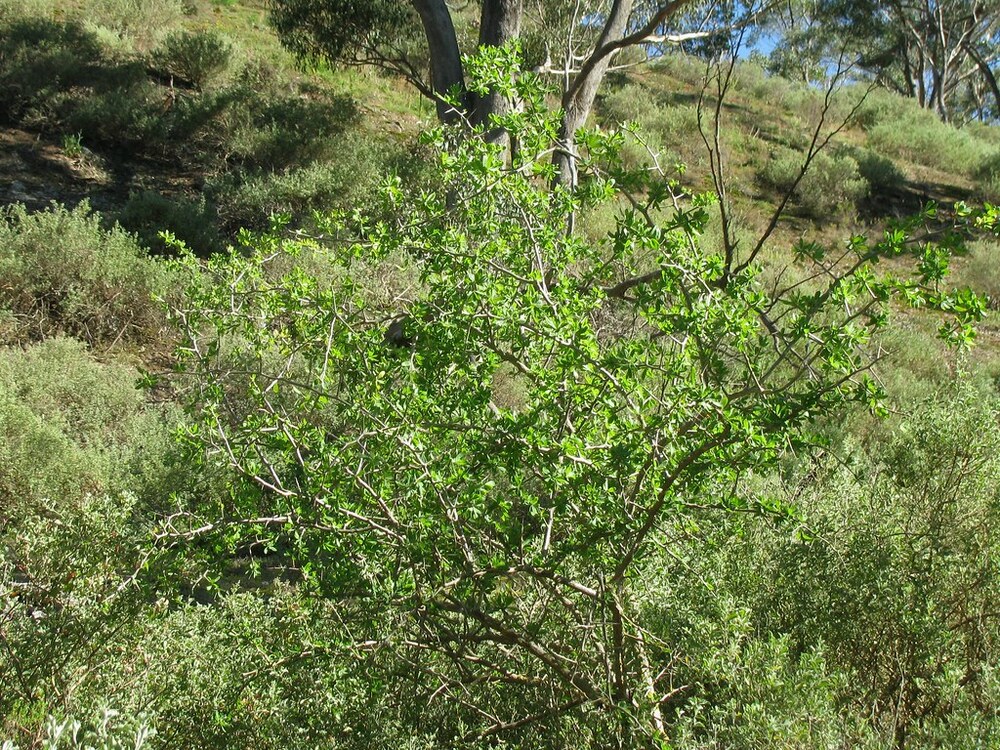Fungus release to help fight boxthorn
Coonamble Times
01 March 2024, 8:20 PM
 The rust fungus is expected to reduce the ability of African Boxthorn to seed and spread
The rust fungus is expected to reduce the ability of African Boxthorn to seed and spreadFarmers in the eastern portion of the western plains who have been doing battle with boxthorn will soon have an ally in their fight against the invasive weed.
The area around Coonamble has been targeted under a National Flagship Program as the first to see the release to landholders of a biocontrol agent, a rust fungus Puccinia rapipes.
The fungus is a sworn enemy of the African Boxthorn, coming from the same neighbourhood in South Africa as the plant itself.
"It was approved for release a couple of years ago but the investment for NSW only commenced in June 2023," said Ben Gooden, a Senior Research Scientist based at the CSIRO in Canberra and manager of the National Weed Biological Control Program.
"We choose not to release the fungus in summer, we will release it in autumn to give it the best chance of establishing."
Landowners are being invited to a field day near Coonamble next Thursday 7 March where they will hear from Mr Gooden, have an opportunity to ask questions and register for inclusion in the coming release of the fungus.
"This area was chosen because it is significantly impacted by African Boxthorn," Mr Gooden said.
"Nationally it is designated as a Weed of National Significance but it has significant impacts on rangeland grazing in southern and central NSW."
"Herbicides are expensive and its hard to manage, it takes over under shade trees or around watering points and animals avoid it.
"Even when a farmer slashes the plant it just resprouts and re-establishes.
"If you spray it you can get a good kill but it still has the capacity to re-establish."

It is the invasive nature of the boxthorn where the fungus is expected to have its biggest impact.
"A key point is the fungus doesn't kill the plant but if it establishes it reduces the plant's vigour and ability to grow and set fruit," he said.
As it is the dispersal of the fruit that allows the plant to re-establish and spread, it is expected that the long term effect will be a huge reduction in the areas affected and in the effort required by landholders to control it.
"In the short term it will complement how people control the weed, not replace what they do," he said. "over a long period they will use less chemical less often."
"This project aims to get the fungus established in lots of different places in the next two years."
"We've demonstrated that it releases microscopic spores which spread to nearby plants, sometimes kilometres away, so it moves through the landscape itself.
"We don't see that in the future there will be a need to re-release the fungus."
The CSIRO has also spent a long time proving that the fungus is unable to infect and damage other species, including native plants and cultivated crops, a factor that was critical to gaining approval for its release.
"The Local Land Services invited us to the field day because boxthorn is particularly hard to manage and its such a significant problem in your area," Mr Gooden said.
"At the workshop I'll demonstrate how to manage a release."
For further information contact Jodie Lawler at the Central West Local Land Services on 0437 842214.



